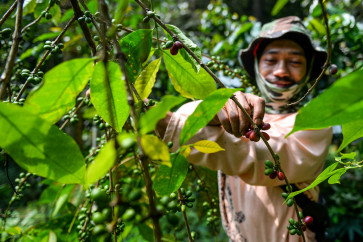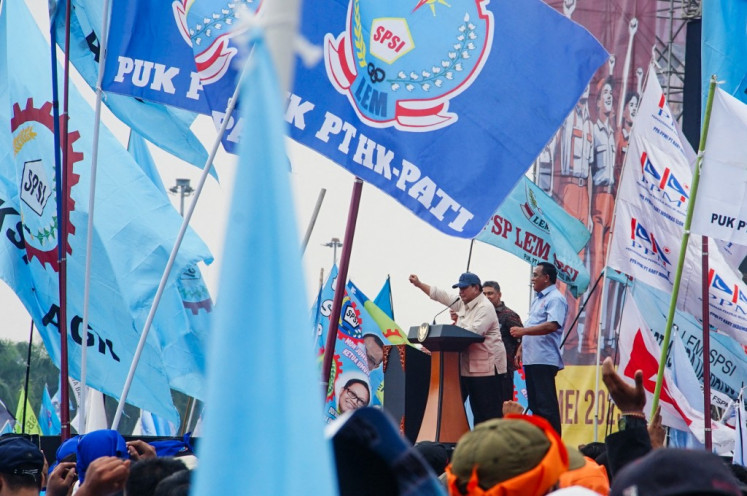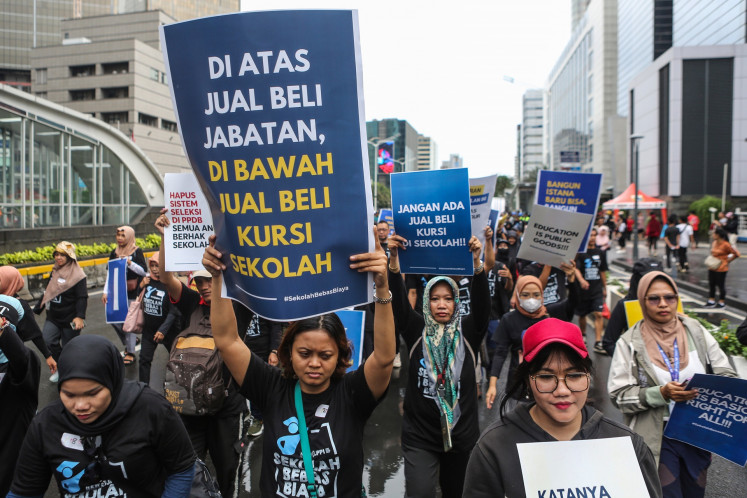Defending palm oil against unfair attacks
The West has launched a veritable war against palm oil
Change text size
Gift Premium Articles
to Anyone

T
he West has launched a veritable war against palm oil. Although the aim of this unscrupulous attack is commercial, its implications are both economic and social.
Despite the instigators being clearly identifiable, palm oil has fallen prey to what in Italy is usually referred to as the Artichoke Strategy: there is no real heart, but there are so many leaves, each of which reveals another.
There are a multitude of interests that are often in conflict with each other, but among which, in the battle against palm oil plantations, a common denominator has been found.
There are the producers of vegetable oils and many food companies that benefit economically from the absence of palm oil.
There are the retailers that promote their own brands and then there are the consumer and farmers’ associations, and even trade unions.
And then, of course, there are the so-called health and environmental NGOs, not to mention the nationalist and protectionist political movements, and finally there’s the modern day version of those associated with twentieth-century ideologies. Italy, for example, has all of these.
According to Italy’s really powerful farmers’ lobby, palm oil is the cause of the schizophrenic increase in the price of butter.
Nothing could be further from the truth, since only a few products have replaced palm oil with butter. It is true that many food producers have gone for other vegetable oils with the aim, that has never been overtly stated, of winning over a few more consumers in what is an already stagnant market.
But, as a recent study by the think-tank Campagne Liberali, many of the brands that have replaced it with other oils have not reduced the levels of saturated fats.
Western consumers love to let themselves be duped, apparently because of their obsession with the word “free”: sugar free, fat free, gluten free, etc.
In the same way as they are obsessed with their duty to save the planet, its fauna and its flora.
It’s just a pity that in the case of both these obsessions, they fail to follow any experimental method but rather rely on an ideology.
Sadly, the West is progressively abandoning recourse to science in the public debate. This does not only concern consumers, but also the so-called leadership, that is to say the large industrial groups, workers’ associations and producers, as well as the political class.
The impact of this war, which is still very limited, at least on a commercial level, risks undermining the reputation of the major producers of palm oil, with dramatic, long-term repercussions. Up to now, Indonesia and Malaysia have responded to the attacks of the western groups.
Nevertheless, with the worsening of the conflict, it might be opportune to begin responding to the West with the same subtle weapons of intelligence and communication, for example by questioning the West’s production methods, its historical and philosophical contradictions, and its tedious arrogance.
________________________
Western consumers love to let themselves be duped,
Take the case of deforestation. Europe has taken some thousand years to arrive at policies in favor of the environment and sustainability.
In the meantime it has, and continues in part to deforest, pollute, transform or, more precisely, devastate its own lands. Even today there is still no European Union country that is blameless.
One need simply think about my country, Italy. And yet today, the EU preaches the sermon of the good head of the family all over the world: do not repeat our errors. Those European sermons are worth treasuring.
Nevertheless, it is worth reminding them that in Indonesia and Malaysia (i) almost the same level of environmental and health awareness has been reached in less than 50 years (compared to the 2000 years at least in Europe); (ii) a lot is being invested in sensitizing the population, that is numerically greater than those of the major EU countries as a whole and spread across a much wider and complex territory; (iii) there is investment in R&D activities and education aimed at the new generations.
In this regard it would be good to remind Europeans how much is being done for innovation and therefore to increase productivity and sustainability.
Give them these facts and figures. And do not be afraid to ask them what they are doing to protect their territory, to fight child labor, the exploitation of migrants, inequalities between men and women, and the many species of animals that are at risk of extinction.
You will notice that in Europe and in the West we are very good at pontificating, creating regulations that very few adhere to and impose them on others.
Compared to you, we have an arrogance that renders us superior, while in fact we’re anything but.
Listen to us, we have a lot to share about our past, including the colonialist period, but do not be afraid to criticize us, and above all to remind everybody about your great efforts and all those improvements you have been making.
__________________________________
The writer, founder of competere.eu, is an adjunct professor at John Cabot University and a contributor to Italian news outlets.









